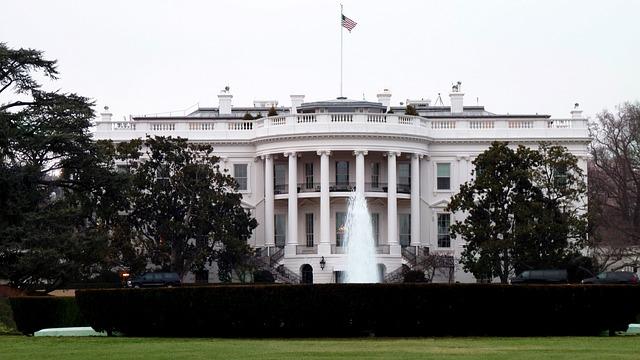The political landscape in the United States is witnessing an unexpected tension as a faction of conservatives mounts a growing critique against former President Donald Trump’s version of capitalism. Once hailed as a champion of free-market principles, Trump’s brand of business-driven populism is now drawing accusations of veering towards “socialist” policies from within his own ideological camp. This backlash highlights deepening divisions over the future direction of the Republican Party and the definition of American capitalism in an era marked by economic shifts and cultural battles.
Trump’s Capitalism Model Sparks Conservative Concerns Over Emerging Socialism
Conservative factions within the US political landscape have begun vocalizing apprehensions about the direction of Trump’s economic policies, which they argue blur the line between capitalism and socialism. Critics claim that the increasing government intervention in private enterprise, coupled with protectionist trade measures and expanded federal subsidies for certain industries, contradict the foundational principles of free-market capitalism. This perceived departure has ignited internal debates as traditional conservatives question whether the Trump-era economic agenda is inadvertently nurturing a form of state-influenced socialism.
Key areas fueling these concerns include:
- Government bailouts: Support for major corporations seen as ‘too big to fail’
- Trade protectionism: Imposition of tariffs and barriers that disrupt global market dynamics
- Regulatory favoritism: Policy shifts benefiting select industries over broad competition
| Policy Aspect | Conservative Concern | Potential Impact |
|---|---|---|
| Bailouts | Undermines free-market discipline | Creates corporate dependency on government support |
| Tariffs | Disrupts international trade agreements | Raises consumer costs and invites retaliation |
| Subsidies | Favors certain businesses unfairly | Distorts competitive market landscape |
Analyzing the Conservative Backlash Against Market Interventions in Trump-era Policies
During the Trump administration, a distinct tension emerged within conservative ranks as policies traditionally championed by free-market advocates incorporated interventions often labeled as “populist” or even “socialist.” This shift provoked intense scrutiny and criticism from conservatives who perceived these market interventions as betrayals of core capitalist principles. The backlash highlighted a growing unease about government overreach, with detractors arguing that expanding federal influence in industries such as energy, agriculture, and manufacturing risked undermining economic freedoms and distorting competitive markets.
Conservative critics targeted several key aspects, emphasizing:
- Tariffs and Trade Barriers: While aimed at protecting American jobs, these measures were seen as protectionist detours away from free trade orthodoxy.
- Regulatory Rolls and Bailouts: Interventionist responses to economic disruptions clashed with the belief in minimal government interference.
- Nationalism in Economic Policy: Prioritizing domestic industries sparked fears of isolationism and weakened global market integration.
| Policy Element | Conservative Concern | Perceived Impact |
|---|---|---|
| Steel and Aluminum Tariffs | Protectionism vs. free trade | Potential for global trade retaliation |
| Coronavirus Relief Packages | Government spending increase | Risk of long-term fiscal imbalance |
| Energy Sector Subsidies | Market distortion | Competitive disadvantage for alternative energy |
Implications for Future GOP Economic Strategies Amid Socialism Accusations
The growing narrative accusing Trump’s brand of capitalism of sliding towards socialism has forced GOP strategists to reconsider their economic messaging and policies. As conservative critics highlight government interventions seen as antithetical to free-market principles, the Republican Party faces a delicate balancing act: maintaining traditional pro-business rhetoric while addressing the electorate’s demand for tangible economic relief. This tension is sharpening intra-party debates over the future direction, particularly around issues like corporate subsidies, trade protections, and federal spending programs.
To navigate these challenges, GOP leaders are expected to emphasize fiscal responsibility and market-driven growth while distancing themselves from policies that could be portrayed as socialist. Potential strategic shifts include:
- Prioritizing tax reforms that stimulate private investment without expanding government reach
- Scaling back direct government bailouts to avoid criticism of overreach
- Promoting deregulation efforts that appeal to core conservative values
- Using targeted messaging to contrast conservative economic ideals against perceived collectivist policies
| Element | Traditional GOP | Trump-Era Perception |
|---|---|---|
| Government Intervention | Minimal | Expanded |
| Trade Policy | Free Trade | Protectionist |
| Corporate Support | Market-Led | Government-Backed |
Recommendations for Reconciling Pro-Business Agendas with Conservative Anti-Socialist Sentiments
To bridge the gap between pro-business policies and conservative anti-socialist sentiments, political leaders must emphasize a narrative that champions economic freedom alongside personal responsibility. Articulating how free-market initiatives can empower individuals rather than enable government overreach helps alleviate fears of creeping socialism. This approach encourages policies that prioritize deregulation, lower taxes, and private sector growth, while visibly rejecting big-government solutions often criticized within conservative circles.
Moreover, fostering dialogue that highlights shared values between capitalist ambitions and conservative principles can soften ideological divides. Strategies include:
- Promoting entrepreneurial innovation as a pathway to national prosperity and personal achievement.
- Framing welfare reform as a means to enhance self-sufficiency rather than dependence.
- Emphasizing transparent governance to counter fears of centralized power and socialist control.
| Key Focus Area | Conservative Concern | Proposed Messaging |
|---|---|---|
| Deregulation | Loss of personal freedom due to government control | Government should enable, not stifle, business growth |
| Taxation | High taxes fund expanding government programs | Lower taxes boost job creation and economic independence |
| Welfare | Excessive dependency undermines self-reliance | Reform welfare to promote individual empowerment |
The Conclusion
As the debate over economic policy intensifies, the clash between Trump’s brand of capitalism and the emerging conservative backlash signals a shifting landscape within the US right. With accusations of ‘socialism’ levied against certain market interventions, the future direction of American capitalism remains uncertain. Observers will be watching closely to see how these ideological battles shape the policies and priorities of the Republican Party moving forward.




